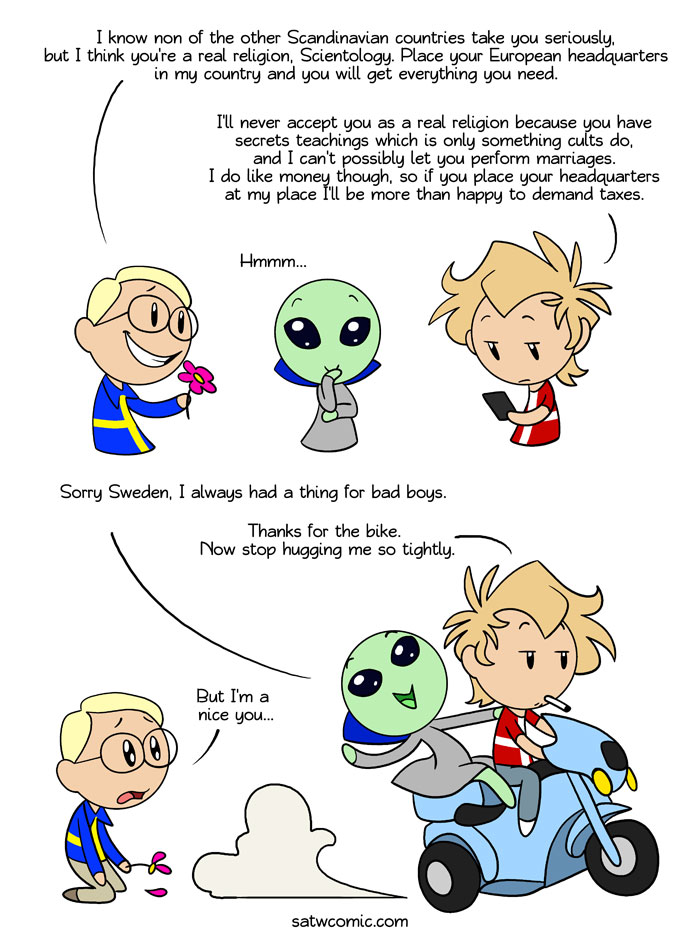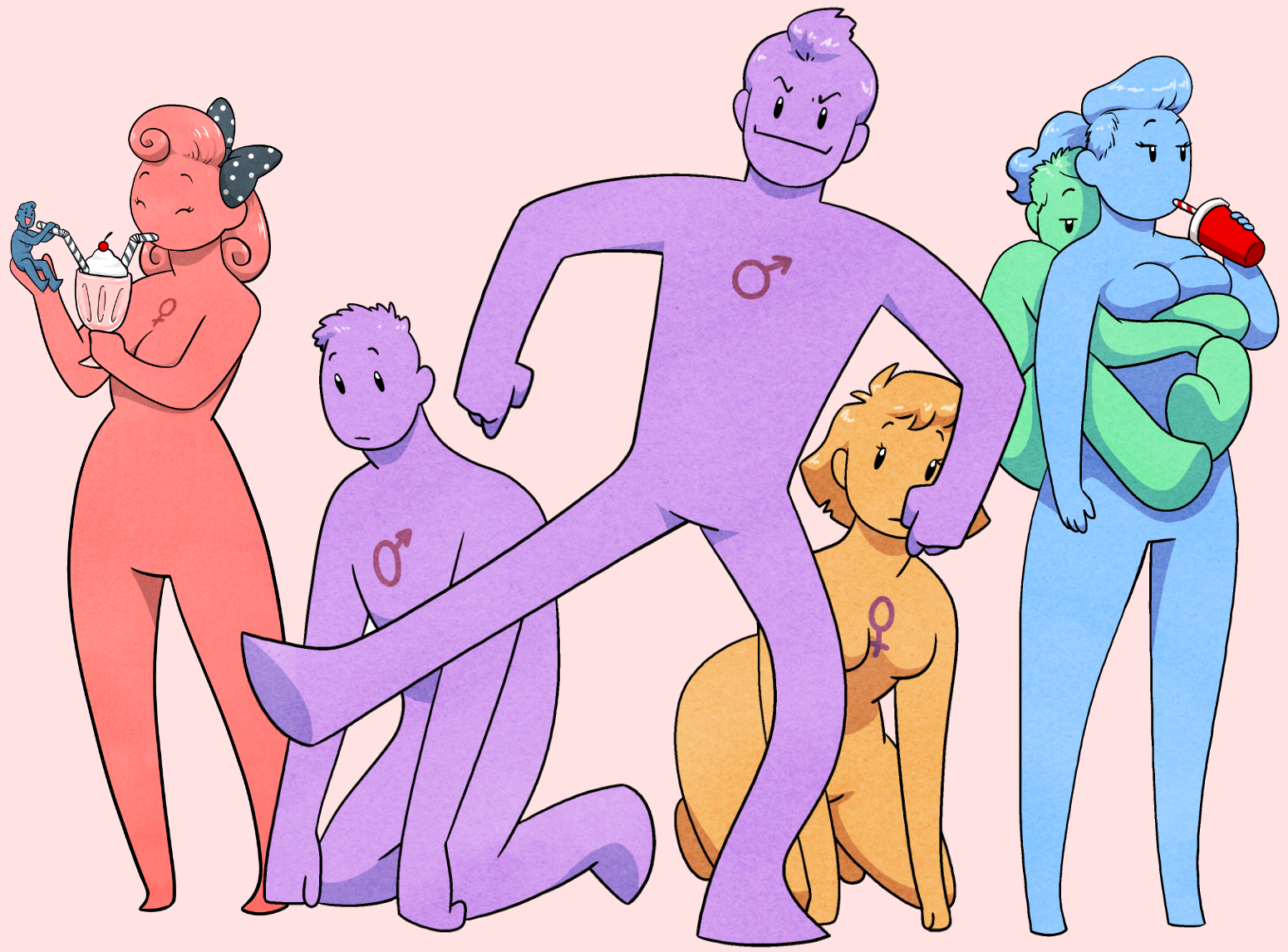8 years ago #9775698
12
4
Why does the state recognise *any* religion?
I'm serious. If in a given situation a person is allowed to wear a cross for religious reasons, they should be allowed to wear it for non-religious reasons too. The same applies to any other religious apparel or ritual. The state should not be allowed to judge which reasons for wanting to do something are valid, and which are not. There can be no justification for making windows into men's hearts.
As for tax benefits, every dollar of tax exemption given to religious organisations is equivalent to a subsidy to that organisation, which must be paid for by the rest of the population. Some of whom are nonbelievers. A Christian should not be forced to pay for a mosque, nor a Muslim for a church. Nor an atheist for either.
(And because I'm sure you've all jumped to a certain conclusion... no, I'm not an atheist.)
I'm serious. If in a given situation a person is allowed to wear a cross for religious reasons, they should be allowed to wear it for non-religious reasons too. The same applies to any other religious apparel or ritual. The state should not be allowed to judge which reasons for wanting to do something are valid, and which are not. There can be no justification for making windows into men's hearts.
As for tax benefits, every dollar of tax exemption given to religious organisations is equivalent to a subsidy to that organisation, which must be paid for by the rest of the population. Some of whom are nonbelievers. A Christian should not be forced to pay for a mosque, nor a Muslim for a church. Nor an atheist for either.
(And because I'm sure you've all jumped to a certain conclusion... no, I'm not an atheist.)
8 years ago #9775894
11
2
Re-posting this here rather than as a reply, in the hopes that more people will see it:
Cult is a subset of religion. The three earmarks of a cult are: layers of secrecy (the higher rank you are, the more secrets you know); encouraging isolation from mainstream society; and authoritarianism (questioning higher-ranking members is strongly discouraged).
A cult isn't always bad -- in the ancient world, there were often cults for particular social groups, and those cults were constructed to fit into their society.
The problem with cults now is that because of their secrecy, isolation, and authoritarianism, they may consider their own leaders' authority greater than that of secular authorities, and encourage their members to perform actions that break secular laws (such as abusing fellow cultists deemed insufficiently obedient).
Cult is a subset of religion. The three earmarks of a cult are: layers of secrecy (the higher rank you are, the more secrets you know); encouraging isolation from mainstream society; and authoritarianism (questioning higher-ranking members is strongly discouraged).
A cult isn't always bad -- in the ancient world, there were often cults for particular social groups, and those cults were constructed to fit into their society.
The problem with cults now is that because of their secrecy, isolation, and authoritarianism, they may consider their own leaders' authority greater than that of secular authorities, and encourage their members to perform actions that break secular laws (such as abusing fellow cultists deemed insufficiently obedient).
8 years ago #9775710
9
1
That went well. Let us go forward and demand money from more religions while insulting them 
8 years ago #9775800
8
3
Seen several comment saying it's not a religion, it's a cult.
But if I remember correctly so is every religion a cult, but not every cult is a religion. Cult is the bigger word here. And while I do not remember what the requirement was for a cult to be a religion, I do have a faint memory of a program or book mentioning that Scientology checking enough boxes to qualify as a religion. Not 100% sure thought.
And excuse my spelling if I made any major mistakes, writing on Phone with no english spellcheck.
But if I remember correctly so is every religion a cult, but not every cult is a religion. Cult is the bigger word here. And while I do not remember what the requirement was for a cult to be a religion, I do have a faint memory of a program or book mentioning that Scientology checking enough boxes to qualify as a religion. Not 100% sure thought.
And excuse my spelling if I made any major mistakes, writing on Phone with no english spellcheck.
8 years ago #9775825
7
2
Scientology, while certainly bonkers, isn't really more bonkers than other religions. It's just newer and their greed is more obvious.
8 years ago #9775704
7
0
Operation Clambake (http://www.xenu.net/) is the best online resource for learning about the Church of Scientology. Not only does it detail the cult's secret beliefs, but it also has a thorough cataloging of their many cons and abuses (including several deaths), and stories from former members who escaped.
8 years ago #9775730
6
0
Yep, Sweden recognize Scientology as a registered community of faith. Just like the Missionary Church of Kopimism. Not sure if Sweden have an official position on what constitutes a Religion though.
This does not mean a community of faith are allowed to perform marriages or get any benefits except their name is protected and that they might get help from the government to collect their membership fee.
You can read more how to apply and what it entitles here:
https://www.kammarkollegiet.se/en/registration-religious-communities
Scientology are not getting any grants from the government as far as I can see however:
http://www.myndighetensst.se/om-oss/regelverk/forordning-om-statsbidrag-till-trossamfund.html
Neither do I think they get any specific tax-deductions.
Unfortunately I could not find a official list of registered communities of faith in Sweden, but it is really easy to do and gives no real benefits except for protection of the name.
This does not mean a community of faith are allowed to perform marriages or get any benefits except their name is protected and that they might get help from the government to collect their membership fee.
You can read more how to apply and what it entitles here:
https://www.kammarkollegiet.se/en/registration-religious-communities
Scientology are not getting any grants from the government as far as I can see however:
http://www.myndighetensst.se/om-oss/regelverk/forordning-om-statsbidrag-till-trossamfund.html
Neither do I think they get any specific tax-deductions.
Unfortunately I could not find a official list of registered communities of faith in Sweden, but it is really easy to do and gives no real benefits except for protection of the name.
Add comment: Please Sign in or create an accout to comment.




 Support the comic on
Support the comic on 





























I'm opposed to stupidity even when it's not evil.